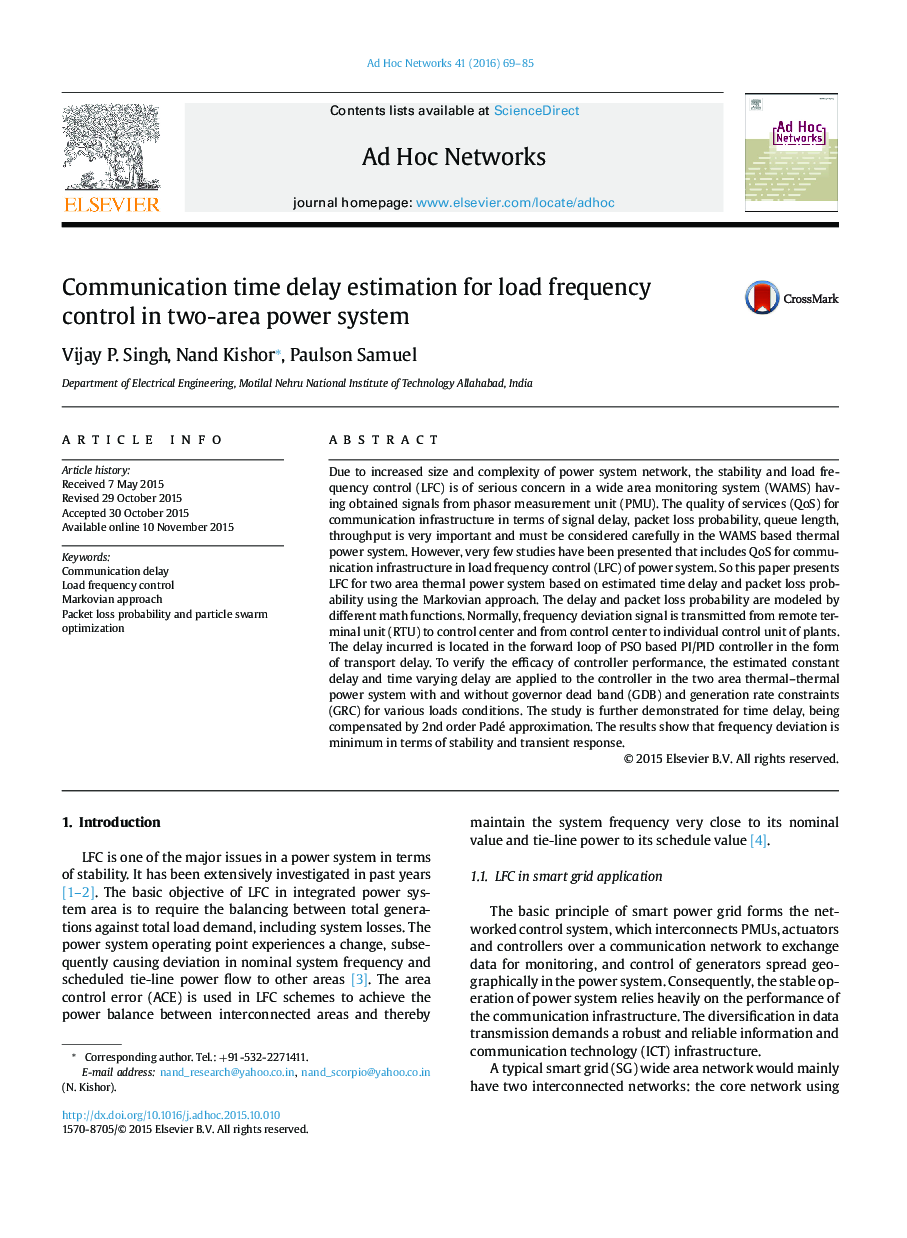| Article ID | Journal | Published Year | Pages | File Type |
|---|---|---|---|---|
| 445911 | Ad Hoc Networks | 2016 | 17 Pages |
Due to increased size and complexity of power system network, the stability and load frequency control (LFC) is of serious concern in a wide area monitoring system (WAMS) having obtained signals from phasor measurement unit (PMU). The quality of services (QoS) for communication infrastructure in terms of signal delay, packet loss probability, queue length, throughput is very important and must be considered carefully in the WAMS based thermal power system. However, very few studies have been presented that includes QoS for communication infrastructure in load frequency control (LFC) of power system. So this paper presents LFC for two area thermal power system based on estimated time delay and packet loss probability using the Markovian approach. The delay and packet loss probability are modeled by different math functions. Normally, frequency deviation signal is transmitted from remote terminal unit (RTU) to control center and from control center to individual control unit of plants. The delay incurred is located in the forward loop of PSO based PI/PID controller in the form of transport delay. To verify the efficacy of controller performance, the estimated constant delay and time varying delay are applied to the controller in the two area thermal–thermal power system with and without governor dead band (GDB) and generation rate constraints (GRC) for various loads conditions. The study is further demonstrated for time delay, being compensated by 2nd order Padé approximation. The results show that frequency deviation is minimum in terms of stability and transient response.
